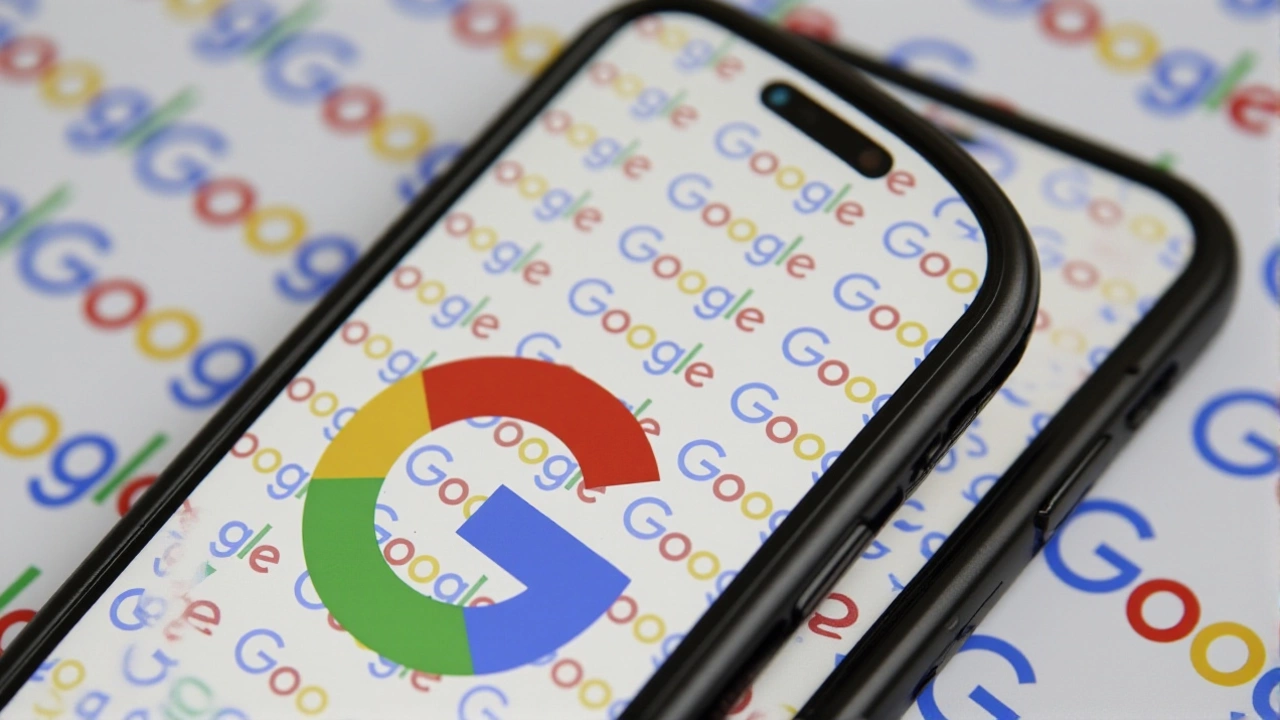When Warren Edward Buffett quietly bought $4 billion in Alphabet Inc. shares last quarter, he didn’t just make a new investment—he closed a 20-year chapter of regret. The move, disclosed in Berkshire Hathaway Inc.’s November 14, 2025 SEC Form 13F filing, came as the company sold off 15% of its Apple stake, trimming holdings to 238.2 million shares worth $60.6 billion. It wasn’t a retreat from tech—it was a realignment. Buffett, 94, is shifting Berkshire’s focus from device-driven growth to the invisible backbone of artificial intelligence: data centers, custom chips, and global fiber networks. And he’s doing it as he prepares to hand over the CEO reins.
Why Alphabet Now? The Mistake That Haunted Buffett
Buffett has spent years calling his failure to buy Google stock one of his biggest investment regrets. As recently as November 19, 2025, financial analysts at Home.saxo quoted him saying, "Alphabet sat in plain view, with search profits and cash flow, while he stayed on the sidelines." That hesitation lasted decades. While other investors piled into Google’s search dominance in the 2000s and 2010s, Buffett stuck to what he knew: banks, railroads, soda bottles. But the AI revolution changed the calculus. Alphabet’s Google search engine, now powered by Gemini models, reaches hundreds of millions daily. Its advertising revenue, which funds a $90 billion 2025 infrastructure push, isn’t just profitable—it’s predictable. And that’s Buffett’s sweet spot.The Numbers Behind the Pivot
Berkshire’s $309 billion equity portfolio now has Apple at 21%, still its largest holding. But the Alphabet stake—though smaller in dollar terms—is the most strategically significant new position of 2025. Alphabet trades at roughly 25 times expected earnings, a relative bargain compared to Tesla, Inc., which trades at over 80x. Meanwhile, Alphabet’s $90 billion in 2025 capital spending—up 20% from 2024—isn’t just about growth. It’s about control. The company is building its own AI chips, expanding data centers from Mountain View to Singapore, and locking in long-term cloud contracts with enterprises. This isn’t speculation. It’s infrastructure.Buffett’s team didn’t chase flashy AI startups. They bought the picks and shovels. The analogy isn’t new—Wall Street has used it since the California gold rush—but it’s never been more accurate. While NVIDIA Corporation sells the GPUs, and Meta Platforms Inc. trains massive models, Alphabet owns the plumbing. YouTube ads, Google Cloud, Workspace subscriptions—they’re all cash machines that fund the next generation of AI.

Why This Matters for Everyday Investors
Most people think AI means robots, self-driving cars, or ChatGPT. But the real money isn’t in the apps—it’s in the layers beneath. Think electricity grids, not lightbulbs. Buffett’s move tells us something: the winners in AI won’t necessarily be the ones with the coolest demos. They’ll be the ones with the most reliable, scalable, and profitable infrastructure. And Alphabet, with its $120 billion in annual free cash flow, has more than enough to fund its own future while returning capital to shareholders.The timing is no accident. Buffett’s handover to Greg Abel is expected to finalize in 2026. This isn’t just a final trade—it’s a legacy statement. He’s telling the next generation: "Don’t look for the next iPhone. Look for the next data center." And he’s putting $4 billion behind it.
What Comes Next? The Ripple Effect
Since the November 18 disclosure, Alphabet’s stock (GOOG) has seen a 12% volume spike. Institutional investors are re-evaluating their AI exposure. Are they betting on hardware? Software? Or the underlying systems? Buffett’s move has already shifted the conversation. Analysts at J.P. Morgan and Morgan Stanley now rate Alphabet as a "top pick for infrastructure exposure," citing its lower valuation and superior cash flow compared to peers.Could Berkshire buy more? Possibly. With Apple still a massive holding, further reductions are likely—but not because Apple is weak. It’s because Alphabet offers a different kind of growth: steady, scalable, and embedded in everyday digital life. And that’s exactly what Buffett always wanted.

Historical Context: From Skeptic to Convert
Buffett first bought Apple in 2016, after years of avoiding tech stocks. He called it "the most important company in the world," a surprising endorsement. By 2021, Berkshire held nearly 907 million Apple shares. But even then, he didn’t touch Alphabet. Why? He admitted he didn’t fully understand the business model. Now, he does. The AI revolution made it obvious: search isn’t just a tool—it’s a gateway to everything. And Alphabet controls the gate.Compare this to 2013, when Buffett told shareholders he didn’t invest in tech because he couldn’t predict its future. Fast-forward to 2025: he owns Apple, Amazon, and now Alphabet. He didn’t change his philosophy—he just learned to see the future through a new lens.
Frequently Asked Questions
Why did Warren Buffett sell Apple shares to buy Alphabet?
Buffett didn’t sell Apple because it was failing—he sold to rebalance. Apple remains Berkshire’s largest holding at $60.6 billion. But Alphabet offers higher growth potential in AI infrastructure, with lower valuation multiples and massive free cash flow. The move reflects a strategic pivot from consumer devices to the underlying systems powering AI, not a rejection of Apple.
How does Alphabet’s $90 billion AI investment compare to its competitors?
Alphabet’s $90 billion 2025 spend is the largest among the "Magnificent Seven," surpassing Microsoft’s $75 billion and Amazon’s $70 billion in cloud and AI infrastructure. Unlike NVIDIA, which sells chips, or Tesla, which builds cars, Alphabet is building the entire ecosystem: data centers, fiber networks, and custom AI chips. This vertical integration gives it long-term cost advantages and pricing power.
Is this investment risky given Buffett’s age and upcoming leadership transition?
Not really. Buffett’s team made the decision based on long-term fundamentals, not short-term trends. Greg Abel, the incoming CEO, has been involved in Berkshire’s tech investments for years. The Alphabet purchase aligns with the firm’s core philosophy: durable competitive advantages, strong cash flow, and fair valuations. This isn’t a gamble—it’s a calculated legacy move.
What does this mean for regular investors who don’t own Berkshire stock?
It signals that AI’s real value lies in infrastructure, not flashy apps. Investors should consider companies with strong cash flow, recurring revenue, and control over essential digital systems—like cloud providers, chip manufacturers, and data center operators. Alphabet’s 25x P/E ratio is a bargain compared to Tesla’s 80x, making it a compelling long-term play even outside Berkshire’s portfolio.
Why is Alphabet’s valuation lower than Tesla’s despite being more profitable?
Wall Street assigns higher multiples to companies with explosive growth narratives—like Tesla’s electric vehicles and autonomous driving dreams. But Alphabet’s profits are proven: $30 billion in quarterly operating income from ads and cloud services. Investors are paying for potential with Tesla, but paying for cash flow with Alphabet. Buffett knows which one lasts longer.
Could Berkshire invest in other AI infrastructure companies next?
Absolutely. With Alphabet now in the portfolio, Berkshire may look at firms like Microsoft Corporation (Azure cloud), Amazon.com Inc. (AWS), or even NVIDIA Corporation if its valuation stabilizes. But the pattern is clear: infrastructure over consumer hype. The next move will likely follow the same logic—steady, scalable, and cash-flow-driven.






Written by Griffin Callahan
Hi, I'm Griffin Callahan, a sports enthusiast with a particular expertise in tennis. I've dedicated years to studying the game, both as a player and an analyst. My passion for tennis has led me to write extensively about the sport, covering everything from player profiles to match analyses. I love sharing my knowledge and insights with fellow tennis fans, and I'm always eager to engage in discussions about the sport we all love.
All posts: Griffin Callahan